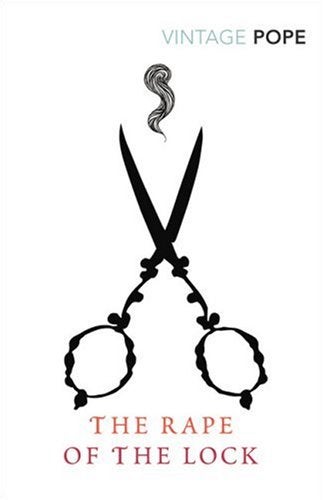 In Alexander Pope’s “The Rape of the Lock,” Pope eloquently uses heroic couplets to mock the trivial pursuits society indulges itself in. The first few lines “what dire offense from amorous causes springs, what mighty contests rise from trivial things” mocks how society no longer honors and celebrates pursuits that are righteous and significant but rather pursuits of diminishing quality. The “contest” Pope alludes to are card games and sexual conquests rather than “mighty” struggles such as the epic battles of ancient stories. Hence, Pope begins his first canto in an ironic sense by juxtaposing the significant with the insignificant. He illuminates and ridicules the trivial games society indulges itself in rather than addressing issues of serious manners such as economics and politics. Furthermore, the line “her joy of gilded chariots, when alive, and love of ombre, when death survive” states woman are primarily concerned with social image and, within the mind, lack any sense of seriousness towards things outside of their world due to social conventions. In addition, the line “with varying vanities, from ev’ry part, they shift the moving toyshop of their heart; where wigs with wigs, with sword-knots sword-knots strive” suggests that vanity has replaced intelligence and society has deemed values of little importance to be outstanding qualities of character and person. However, Pope does not blame the participants for the immoral state of principles but rather the supernatural creatures “sylph that contrived it all.” Therefore, we see that the mystical beings serve an allegorical purpose. By stating that these creatures have woven the current state of society, Pope is placing the blame not on the participants but rather society for creating such deplorable individuals.
In Alexander Pope’s “The Rape of the Lock,” Pope eloquently uses heroic couplets to mock the trivial pursuits society indulges itself in. The first few lines “what dire offense from amorous causes springs, what mighty contests rise from trivial things” mocks how society no longer honors and celebrates pursuits that are righteous and significant but rather pursuits of diminishing quality. The “contest” Pope alludes to are card games and sexual conquests rather than “mighty” struggles such as the epic battles of ancient stories. Hence, Pope begins his first canto in an ironic sense by juxtaposing the significant with the insignificant. He illuminates and ridicules the trivial games society indulges itself in rather than addressing issues of serious manners such as economics and politics. Furthermore, the line “her joy of gilded chariots, when alive, and love of ombre, when death survive” states woman are primarily concerned with social image and, within the mind, lack any sense of seriousness towards things outside of their world due to social conventions. In addition, the line “with varying vanities, from ev’ry part, they shift the moving toyshop of their heart; where wigs with wigs, with sword-knots sword-knots strive” suggests that vanity has replaced intelligence and society has deemed values of little importance to be outstanding qualities of character and person. However, Pope does not blame the participants for the immoral state of principles but rather the supernatural creatures “sylph that contrived it all.” Therefore, we see that the mystical beings serve an allegorical purpose. By stating that these creatures have woven the current state of society, Pope is placing the blame not on the participants but rather society for creating such deplorable individuals.
In conclusion, Pope describes a society lacking in morality and overwhelming in vanity. He satires the pompous nature of the aristocracy and presents the upper class as foolish and ridiculous. However, he sympathizes with these participants by blaming social conventions for creating such individuals. Furthermore, we can infer from Pope’s mockery of social conventions that early 18th century was, perhaps, a time when religious influence was declining. Hence, in the eyes of a Catholic, it may be concluded that Pope’s mockery of society is a product of religious downturn.
-Richard Chang
